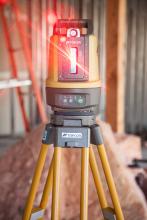Of the 360,000 searches for highways projects, 38% were for the installation of street furniture, 18% related to road resurfacing, 13% were for linear projects, 3% for gully works and 1% for traffic calming measures.
Despite the promising increases in the number of searches, more than 1.5 million projects out of an estimated 4 million total – including those on highways – still took place without completing a detailed search for underground assets. This equates to 38%, or a dig every 21 seconds, according to the report Digging up Britain 2019, by LSBUD - LinesearchBeforeUDig.
Richard Broome, managing director of LSBUD, welcomed the increases in searches for any pipes or cables before contractors put a spade or digger in the ground. “However, it is worrying that nearly four in ten projects are still being completed without a proper search.
“Worker and public safety are obviously the primary concerns when an asset is hit. But beyond this, the direct and the hidden costs can quickly escalate and that’s not to mention the damage to the contractor’s reputation. That’s why we urge those involved in highway projects to always conduct a search,” he said.
LSBUD’s report explores the costs of asset strikes, sharing data from a study by the University of Birmingham. Factoring in indirect costs such as worker ill-health or injuries caused by a strike plus traffic disruption, impact on the immediate neighbourhood and loss of custom to local business, the true cost of an asset strike is 29 times the direct cost. This equates for every €1,130 of direct cost arising from a utility strike the true cost is €32,755, according to the report.
The risk of such expensive asset strikes is being exacerbated by the growing volume of emergency work taking place. Emergency enquiries increased by 88% last year. If these figures are indicative of what’s happening nationally, of the 4 million jobs completed, 216,000 were emergency related.
“This spike in emergency projects is worrying,” said Broome. “If an asset isn’t registered with our portal, the firm doing the digging will need to deal with the asset owner directly and that can take up to 28 days. This timescale does not fit with the idea of an ‘emergency’, so corners may be cut and assets struck due to the need for speed.”
According to the report, of the UK’s 1.5 million kilometres of underground utility infrastructure, about 800,000km is covered by LSBUD’s collaborative portal. This is a 23% increase on 2018.








